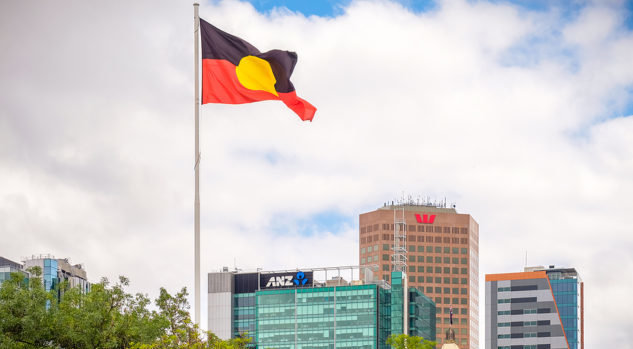October was Indigenous Business Month all around Australia, and I had the privilege of attending the launch of the Murri Chamber of Commerce. It is an Indigenous-led, self-funded initiative that aims to support Indigenous business within Queensland. This state-based chamber is long overdue for Queensland, other states, such as NSW and Victoria have had state-based Indigenous Chambers of Commerce for some time.
In the past, Aboriginal and Torres Strait Islander peoples have been excluded from the mainstream economy, however, these days they are choosing to establish of businesses as a means of self-determination and to achieve economic independence. A strong and sustainable Indigenous economy is essential to close the gap in labour market disadvantage.
According to a recent study from Melbourne University, there are approximately 2.1 million businesses in Australia, with conservative estimates stating between 12,000-17,000 are Indigenous-owned businesses, and of these, 58 per cent were located outside of major cities and 26 per cent were operating in remote locations. Importantly, these Aboriginal and Torres Strait Islander businesses employ around 45,434 people and operate in every state and territory across the nation and are working in every industry sector, ranging from administration, support services, education, health, tourism, construction and ICT.
Research implies that Aboriginal and Torres Strait Islander businesses are more likely to employ Aboriginal and Torres Strait Islander peoples than non-Indigenous businesses (Hunter 2014). They also provide a culturally safe environment within the workplace which helps to overcome discrimination and other barriers to employment.
Aboriginal and Torres Strait Islander peoples continue to live with unacceptable gaps in health, education, employment and living standards, however, Aboriginal and Torres Strait Islander businesses hold the power to make a difference through improved employment rates, increased financial autonomy, increased self-esteem and wellbeing of Aboriginal and Torres Strait islander peoples.
Indigenous Chambers of Commerce are peak bodies for Aboriginal and Torres Strait Islander Business and offer a powerful voice for the needs of Indigenous entrepreneurs and enterprising communities. They offer a suite of services to Aboriginal and Torres Strait Islander entrepreneurs, business owners and social enterprises. The advocacy work of Indigenous Chambers of Commerce at all levels of Government resulted in a national agenda that acknowledges Aboriginal and Torres Strait Islander economic participation as key to addressing generational disadvantage for Aboriginal and Torres Strait Islander peoples.
In addition to the Indigenous Chambers of Commerce, Commonwealth and State governments have a range of policies and programs to assist Aboriginal and Torres Strait Islander peoples in starting and maintaining a business, such as Indigenous Business Australia, Supply Nation and the Indigenous Procurement Policy. The Indigenous Procurement Policy helps Indigenous businesses to grow by requiring Commonwealth procurers to meet certain obligations when purchasing goods and services.
The Queensland Government Minister for Employment and Small Business and Minister for Training and Skills Development recently stated, “Owning a business and securing employment provides a strong foundation for Aboriginal and Torres Strait Islander communities, families and individuals, so it’s important we continue to support First Nations businesses to grow.” Minister Farmer also said that supporting the growth of Aboriginal and Torres Strait Islander owned businesses and creating pathways to inspire the next generation of First Nations business leaders is a priority.
Inspiring the next generation, or even this generation is important. Successful and prominent Aboriginal and Torres Strait Islander business leaders give back to their communities by acting as role models for those who may be considering starting their own businesses. This is how our community works.
I was a founding Director of the NSW Indigenous Chamber of Commerce, and I know the work that chambers do makes a difference in the lives of Aboriginal and Torres Strait Islander peoples and Indigenous businesses are primed to close the gap on the labour market disadvantage that Aboriginal and Torres Strait Islander peoples face.











